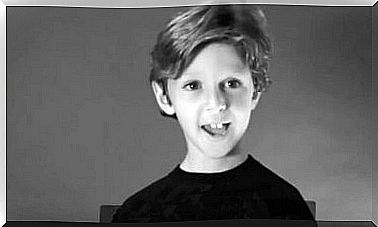Moral Disconnection And Self-forgiveness

Forgiving yourself can be a complex process. It is very important for both the personal life of each of us and our social interactions. This is especially true in highly conflicting situations, such as a war. Sometimes, however, self-forgiveness is made difficult due to a mechanism known as moral disconnection.
Not forgiving yourself leads to a blockage of your emotional life and your potential. As anticipated, forgiveness is possible thanks to a mechanism known as moral disconnection.
Moral disconnection works as a sort of veil for our conscience: the person sees what was previously denied as lawful. It is a form of self-deception which on the one hand opens the doors to atrocities, to a greater or lesser extent, and on the other prevents self-forgiveness.

The moral disconnect
One is not born with a predefined morality and ethics. These concepts are built and developed according to the society in which one lives and the culture that characterizes it. In this way we acquire the principles and guidelines that allow us to react to situations by taking as an example some values deriving from experience. The function of these values is to preserve individual and collective well-being.
Despite this, neither the scale of values nor the principles are permanent. In certain circumstances, in fact, they are suspended and set aside. During a war, for example, taking the life of another human being is permitted although it is not permitted in times of peace.
This phase of suspension of recognized principles and values leaves room for moral disconnection. Let’s go back to the example of war. During a war conflict, killing or deceiving the enemy is not reprehensible behavior, because in these circumstances such actions are not associated with the morals or ethics prior to the conflict.
The mechanisms of moral disconnection
Studies conducted in this regard indicate that moral disconnection occurs in four ways. Everyone happens to change perspective and justify behaviors that otherwise would not be tolerated. The four mechanisms of moral disconnection are:
- Distribution of responsibilities. It occurs when a morally reprehensible act is performed with the support of the group. Since all members of the group act in the same way, individual responsibility is somewhat diminished.
- Transfer of Responsibilities. It occurs when you attribute responsibility for your actions to someone else. For example, when obeying an order, when doing what someone else is required to do, or to avoid punishment.
- Minimization of the consequences. It occurs when the harm done to another person is minimized with the aim of making lawful behavior that is not lawful.
- Victim degradation. It refers to those cases in which the damage is justified by the alleged lack of dignity of the person against whom an immoral action is exercised.
Self-forgiveness
What is the relationship between moral disconnection and self-forgiveness? In principle, it is impossible to forgive oneself for something that is not recognized as a moral error. To forgive themselves, they must first stop operating those mechanisms of justification or minimization characteristic of moral disconnection. If not, self-forgiveness is impossible.
At some point, the aggressor must return to that moral ground in which reason and justice predominate. This is what happens after a war. When this happens, there is a kind of inner emptiness.
A void that can be filled in different ways. For example, denying the facts, hiding having participated in them or adopting a cynical position. It can also happen that remorse takes possession of the person and for this he is punished.

Forgive yourself for moving forward
There are situations where moral disconnection cannot work. In these cases, the best thing to do is to create the conditions for self-forgiveness, followed by a reasonable act of reparation.
If this does not happen, the person becomes an imposter or is paralyzed with guilt. In both cases, the situation is not resolved, on the contrary reality is distorted to the point of finding oneself in front of an emotionally very significant crossroads.
Self-forgiveness begins when you admit your responsibilities and mistakes without making excuses. In a second moment, as far as possible, the damage caused must be materially or symbolically repaired. Asking the affected person for forgiveness is essential for healing; only in this way can we make peace with the past and move forward.









